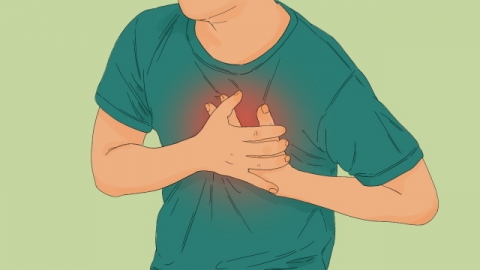Why does eating too many apricots cause heartburn?
Excessive consumption of apricots may cause heartburn, possibly due to increased gastric acid secretion, slowed gastrointestinal motility, gastroesophageal reflux disease (GERD), gastritis, or peptic ulcer. Management can vary depending on the specific condition. If experiencing any discomfort, it is recommended to seek medical attention promptly and follow the doctor's instructions for treatment.

1. Increased Gastric Acid Secretion: Apricots contain a certain amount of citric acid. Overconsumption can irritate the gastric mucosa and stimulate increased gastric acid secretion. When there is excessive gastric acid, a burning sensation (heartburn) may occur, typically felt as a burning discomfort in the chest area, sometimes accompanied by acid regurgitation. To alleviate this, avoid eating apricots on an empty stomach and control the quantity consumed. Drinking some warm water after eating apricots may help dilute gastric acid and relieve symptoms of heartburn.
2. Slowed Gastrointestinal Motility: Consuming too many apricots at once may burden the gastrointestinal tract and slow down peristaltic function. When food remains in the stomach for an extended period, it may lead to acid reflux and cause heartburn. After eating, consider taking a light walk or gently massaging the abdomen to promote gastrointestinal motility and aid digestion, thereby reducing the occurrence of heartburn.
3. Gastroesophageal Reflux Disease: Dysfunction of the lower esophageal sphincter allows gastric contents, including acid, to reflux into the esophagus, causing symptoms such as heartburn, acid regurgitation, and chest pain. Eating excessive apricots can worsen acid reflux and intensify heartburn. It is recommended to take medications such as omeprazole enteric-coated capsules, domperidone tablets, or hydrotalcite chewable tablets under a doctor's guidance.
4. Gastritis: Inflammation of the gastric mucosa caused by various factors such as Helicobacter pylori infection, drug irritation, or improper diet. Overconsumption of apricots may irritate the gastric mucosa, exacerbate gastritis, and lead to heartburn. Patients may follow medical advice to take medications such as rabeprazole sodium enteric-coated tablets, colloidal bismuth potassium citrate capsules, or mosapride citrate tablets to alleviate symptoms.
5. Peptic Ulcer: Chronic ulcers formed when the mucosa of the stomach or duodenum is digested by gastric acid and pepsin, presenting symptoms such as acid regurgitation, heartburn, and belching. Eating too many apricots can irritate the ulcer site, stimulate increased gastric acid secretion, and worsen heartburn. It is recommended to take medications such as esomeprazole magnesium enteric-coated tablets, kangfuxin solution, or amoxicillin capsules as directed by a physician to relieve symptoms.
In daily life, it is advisable to control apricot intake and consume bland, easily digestible foods such as porridge and noodles to reduce the burden on the gastrointestinal tract.
References:
[1] Feng Jun'an, Chen Jun, Qin Zhanyu, et al. Correlation Analysis Between Different Types of Refractory Peptic Ulcer and Clinical Manifestations [J/OL]. Chinese Archives of Traditional Chinese Medicine, 1-12 [2025-03-18].
[2] Zhang Yang, Xu Zixuan, Lü Wenliang. Discussion on the Diagnostic and Therapeutic Patterns of Gastroesophageal Reflux and Psychosocial Characteristics Based on the Concept of "Lung Qi Stagnation." [J/OL]. Shi Zhen Journal of Chinese Medicinal Materials, 1-4 [2025-03-18].




